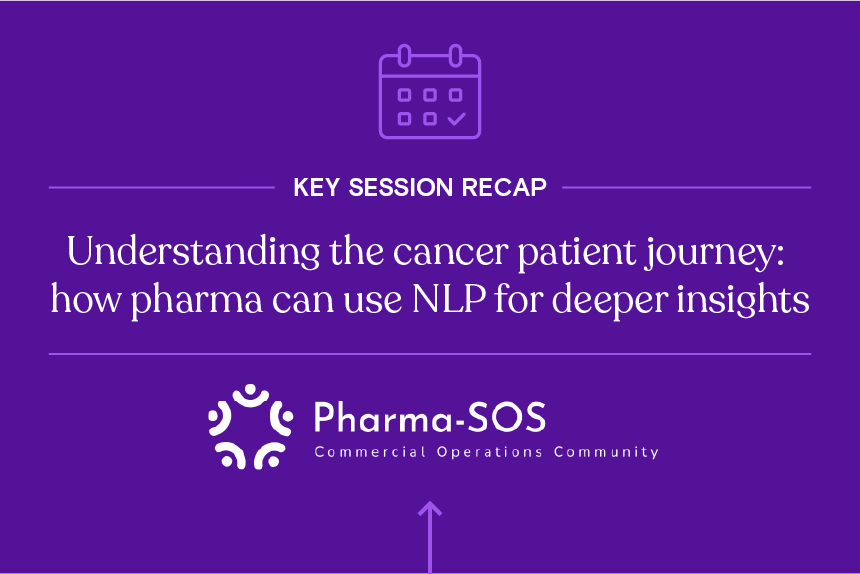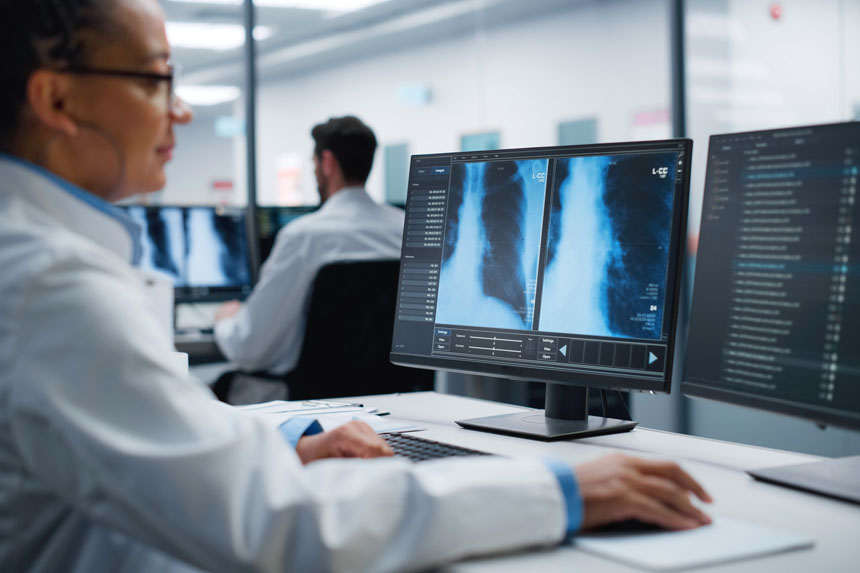Artificial intelligence (AI) and machine learning (ML) technologies have found their way into just about every consumer- and business-facing role across the entire healthcare ecosystem, from drug development to care delivery to medical billing and beyond. It should come as no surprise then that AI and ML are reshaping a role that works on both sides of the life sciences equation: medical affairs.
AI and ML are playing a bigger and bigger role at life science organizations every day: A 2020 report from Deloitte found that more than 60% of life science companies were spending over $20 million on AI tools, and a 2024 report from Straits Research projects that the AI in life sciences market will grow from $2.72 billion in 2023 to $27.34 billion by 2032.
While a considerable portion of AI and ML tools are leveraged for functions like drug development, clinical trial selection, and product optimization, these technologies are also helping MSLs and medical affairs teams perform their valuable work with greater speed, efficiency, and accuracy. Let’s examine some specific ways that AI has made a difference in medical affairs.
Generating faster, more accurate insights
Medical affairs teams—and life science organizations in general—are awash in data, and most of it is unstructured: medical imaging, electronic health records (EHRs), clinical trial results, and other unstructured data points don’t offer much value in isolation, but when combined into massive datasets, they can be analyzed for useful insights. These insights can then be leveraged to inform everything from product development to provider education to market strategy and beyond.
The challenge, of course, is compiling, reviewing, and cleansing all that data without turning the process into a full-time job. That’s where AI and ML come in.
Technologies like natural language processing (NLP), a form of ML that “learns” from written and spoken content, can rapidly categorize and standardize huge quantities of data, helping medical affairs teams find relevant trends and patterns faster and more accurately than they could through manual review. One study from the Fred Hutchinson Cancer Center used an NLP tool to help identify and enroll relevant patients in a clinical trial, cutting the time required for the process from hours to seconds.
For a closer-to-home example, Definitive Healthcare’s Monocl ExpertInsight product uses NLP and other AI methodologies to compile insights on more than 15 million experts around the world and make them easily accessible from a single web platform (or within a user’s CRM via ExpertConnect). Medical affairs teams can leverage these insights to identify, target, and engage the most suitable key opinion leaders (KOLs) for partnership.
Another technology with potential for medical affairs teams is predictive analytics, a form of ML that can turn unstructured data into predictions around future trends and opportunities.
MSLs and other medical affairs professionals are most likely to use predictive analytics to review a KOL’s digital footprint and predict their potential audience, impact, and career trajectory—all useful factors when considering a KOL for partnership.
However, medical affairs teams can also use predictive analytics to identify emerging trends related to market conditions, disease states, demographics, or nearly any other field you can imagine. Understanding where healthcare is headed—and having a data-driven, replicable model behind those predictions—can make it easier for MSLs to address providers’ unique needs and demonstrate the value of collaboration with their company.
Measuring outcomes and making data-driven adjustments
Determining the impact of medical affairs activities has always been a challenge for biopharma and medical device companies. In the pre-digital era, tracking how KOLs’ clinical behavior, insight generation, scientific engagement, and peer influences changed over time required a huge amount of work with few opportunities for quantitative confirmation.
Even now, as digitized data around procedural and diagnostic claims, referrals, prescriptions, publications, and presentations is more widely available, gleaning long-term performance insights from all that data still takes more time and resources than most medical affairs teams would like to dedicate. Luckily, AI and ML are stepping in to shoulder most of the effort.
Using AI, medical affairs professionals can quickly generate critical insights on the KOLs they’ve been working with: How have their prescribing habits changed? How are their peers engaging with their work? Has their share of patients within a target cohort increased or decreased?
These are just a few questions that medical affairs teams must continuously ask as they gauge their engagements and relationships with medical experts. With AI and ML technology, medical affairs organizations can spend less time calculating the impact of past engagements, and more time preparing for the next one—or, making data-driven adjustments to existing engagement strategies.
Monocl ExpertInsight uses AI and ML to monitor KOL activity across social media, enabling MSLs and other medical affairs users to quickly reference behavioral changes among target experts and their audiences over time. This technology also helps users track their company’s scientific share of voice among key audiences.
Monitoring engagement outcomes isn’t just helpful for medical affairs teams looking to sharpen their tactics and strategies; it’s also a critical part of demonstrating a team’s value to the larger organization. AI and ML make it easier for medical affairs teams to generate and share key performance indicators from data related to scientific exchange, expert collaboration, and industry insights.
Learn more about AI and ML in the life sciences
Medical affairs has never been a role associated with hard metrics, but tightened budgets and increasingly competitive markets are forcing these teams to work smarter, faster, and demonstrate their value more quantitatively—to both prospective partners and internal stakeholders alike.
For a deeper look at the ways AI is reshaping the life sciences landscape overall, check out our intelligence report: All in: Why life sciences companies must embrace AI. If you’re interested in integrating AI and ML into your company’s workflow, our AI-focused e-books for biopharma and medical device organizations are great resources.
Definitive Healthcare’s solutions use AI and ML technology to transform massive amounts of data into healthcare commercial intelligence with applications for medical affairs, research and development, sales and marketing, and just about any other function in the life sciences space. To learn more, sign up for a free trial today.





